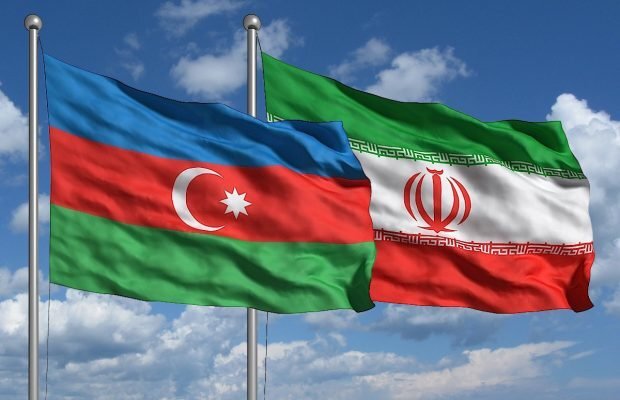Beneficiaries of disturbing a brotherhood; or How FDD makes way for rupture?

TEHRAN — As the two brotherly nations of Iran and the Republic of Azerbaijan face disagreements, some countries and hawkish think tanks tried to meddle in the affairs of the two sides for their own good.
How did the meddling start?
Over the last few weeks, a quiet crisis has unfolded between Iran and the Republic of Azerbaijan over a variety of issues that some Iranian officials attribute to the malign presence of foreigners in Baku.
The episode began in early August when social media users in Iran reported mistreatment of Iranian truck drivers by Azeri forces along the Goris-Kapan Highway which links Iran to Armenia through the newly-liberated Karabakh region. The Iranian trucks were carrying Armenia-bound goods from Iran but due to the change in Karabakh’s borders during a 2020 war they had to pass through a road curve into Azerbaijan’s territory.
Azerbaijan also reportedly imposed a staggering $130 tax on Iranian commercial trucks which drew criticism from Iranian merchants and drivers, who had to pay the tax in cash.
While Tehran and Baku took a silent, diplomatic approach to solve the issue, social media users tried to put pressure on Iranian and Azeri envoys.
Provocative posts on social media from certain groups were intended to push the two countries beyond limits.
The conflict began to grow when Baku invited Iran’s ambassador to Baku, Seyyed Abbas Mousavi, to the Ministry of Foreign Affairs on August 11.
According to the statement released by the Azerbaijani Foreign Ministry, “During the meeting, Ambassador's attention was drawn to the undesirable facts revealed in connection with the illegal travel of trucks belonging to the Islamic Republic of Iran to Karabakh, and Note Verbal was submitted to the opposite side. Dissatisfaction with the recent continuous entry-exit of various vehicles belonging to the friendly Islamic Republic of Iran to the Karabakh region of Azerbaijan without the permission of official Baku is expressed in the Note. Our dissatisfaction, which earlier was conveyed to the Iranian side verbally, was once again raised in front of the Iranian Ambassador during the meeting.”
Meanwhile, entities affiliated with Israel tried to make a big deal out of a simple disagreement over truckload drivers and turn the issue into a national security threat.
Brenda Shaffer from the Foundation for Defense of Democracies has been actively propagating against Iran and Azerbaijan on her Twitter feed, accusing Iran of drug smuggling through Azerbaijan. She is also blowing in the horn of the separatism of Azarbaijan from Iran by trying to provoke the ethnic Iranian Azeris and those from the Republic of Azerbaijan to act against their governments’ will.
The Foundation for Defense of Democracies is a “think tank” and a registered lobbying institution in Washington. It is led by Mark Dubowitz. The FDD has been identified as part of the Israel lobby in the United States.
FDD was founded right after the September 11 attacks in 2001. In the initial documents filed for tax-exempt status in Internal Revenue Service, the FDD stated that its mission was to “provide education to enhance Israel's image in North America and the public's understanding of issues affecting Israeli-Arab relations.”
However, they later modified their mission, as they found out that they should not openly support Israel, describing their mission as conducting research and providing education on “international terrorism and related issues.”
It’s no secret that the organization is founded to cover up Israeli crimes by trying to search for disagreements and conflicts around the world to make a big deal out of them.
There is a division of labor in the organization as well. Mark Dubowitz, the CEO, is responsible for propagating against Iran and the Joint Comprehensive Plan of Action (JCPOA), while Shaffer is responsible for advocating separatism among the Iranians and Azeris.
Aside from the FDD, Israel is carrying out its operation through another channel: Simon Shercliff, the UK ambassador in Iran. On September 30, new Azeri Ambassador to Tehran Ali Alizadeh submitted a copy of his credentials to Iranian Foreign Minister Hossein Amir Abdollahian. However, on September 29, before submitting his credentials, he met with Shercliff. An unwise move by the Azeri envoy to Iran, which drew a lot of criticism.
Keeping with the low-key approach to solve issues through diplomatic channels, Azeri President Ilham Aliyev called for further cooperation with Iran, Russia, and Turkey on October 2. He also said that he is open to meeting his Armenian prime minister to discuss a possible peace treaty, as well as drawing borderlines.
Iran and Azerbaijan can solve their conflicts in a calm and peaceful manner, if Israel and its agents keep their hands away.
SA/PA
Leave a Comment